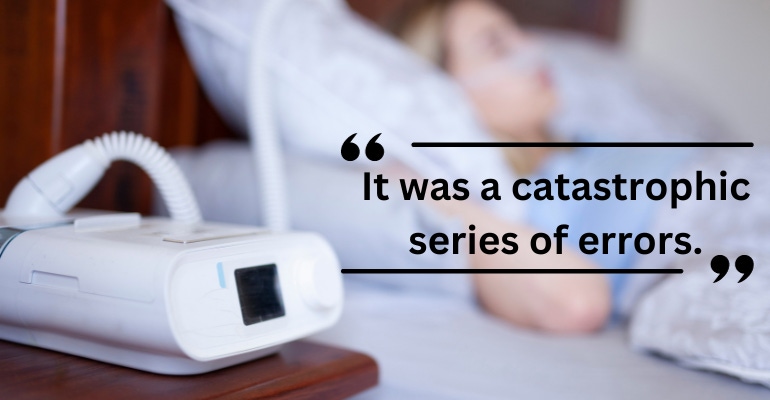Philips Accused of a Dangerous Secret
An investigative report takes Philips to task for keeping complaints about its dangerous breathing machines secret for more than a decade.
September 28, 2023

Philips has been accused of many things since initiating a massive recall of faulty respiratory devices in June 2021, including involuntary manslaughter. Now, an investigative report is taking the Netherlands-based company to task for waiting 11 years before coming forward with the problem, despite mounting evidence that the machines were dangerous.
Soon after redesigning its best-selling respiratory machines using industrial foam to make them quieter, reports started coming into Philips describing "black particles" or "dirt and dust" inside the ventilators and sleep apnea machines, according to the ProPublica report, co-published with the Pittsburgh Post-Gazette.
In a series of statements, Philips said it acted as soon as it learned of the “potential significance” of the problem, but the investigation by ProPublica and the Pittsburgh Post-Gazette tells a much grimmer tale.
"One of a company that sought to protect its marquee products as stock prices soared to the highest levels in decades. Again and again, previously undisclosed records and interviews with company insiders show, Philips suppressed mounting evidence that its profitable breathing machines threatened the health of the people relying on them, in some cases to stay alive," the journalists write.
To examine what happened at Philips, reporters interviewed more than 200 former company supervisors, doctors, toxicologists, patients, and the relatives of those who died, and obtained company records that show officials knew about the dangers but continued to sell the machines. Reporters also reviewed thousands of complaints submitted to the company and government describing device malfunction and injuries, including more than 370 reports of deaths. As part of the investigation, the news organizations collaborated with Mediahuis NRC, the publisher of one of the largest newspapers in the Netherlands, where Philips’ parent company is located.
In 2018, according to the report, the company called engineers and safety supervisors into a series of urgent meetings in Pittsburgh to investigate the problem in what eventually became known to insiders as Project Uno. But even then, the company failed to alert FDA and the public.
Philips said complaints about the foam were limited in the years before the recall and that the reports were evaluated on a case-by-case basis. The company added that it became aware of the potential significance of the problem in early 2021 and launched the recall shortly after that.
Former company engineers and safety supervisors, who spoke on the condition of anonymity because they still work in the industry, said top officials at Philips repeatedly dismissed the problem.
“It was a catastrophic series of errors,” a former compliance supervisor told reporters. “There were people who knew and knew for a long time.”
Philips responds to the investigative report
Philips issued a statement shortly after the investigative report was published Wednesday. The company said it had previously responded to the news organizations involved with the report.
"The articles do not present new facts and we do not agree with the characterizations made in these articles," the statement reads. "Philips’ priority is patient safety and quality. We understand how important Philips Respironics’ sleep therapy devices and ventilators are to patients that use them. Philips regrets any distress and concern for patients, their families and care providers in this matter, and deeply apologizes for this. Philips acted to protect patient safety by initiating and executing a voluntary recall notification/field safety notice of significant scale. We continue to dedicate all available resources to ensure that patients receive remediated devices."
The remediation of the sleep therapy devices is nearing completion, while the remediation of the affected ventilators is ongoing, according to Philips.
About the Author(s)
You May Also Like




